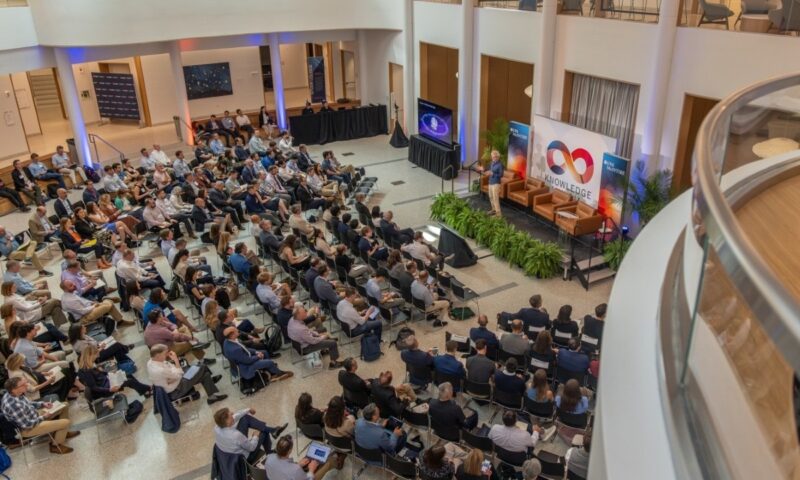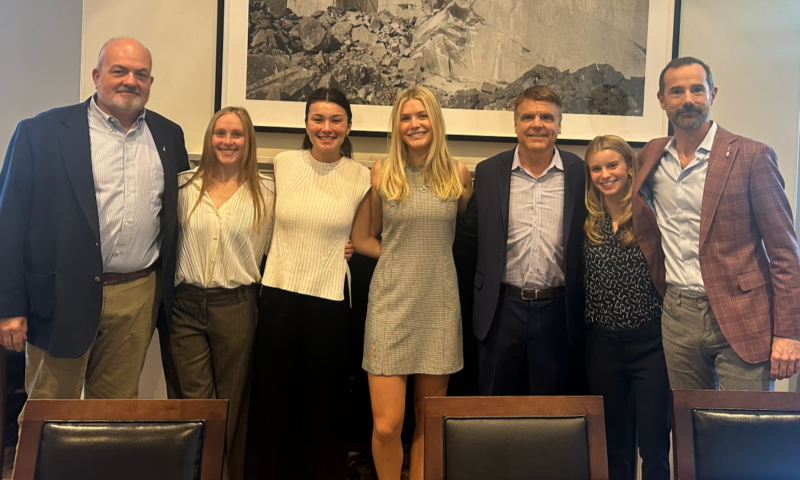One does not need look far to see why the skills that McIntire Accounting Professor Eric Negangard teaches his Accounting students are so necessary. The most recent example is FTX, the cryptocurrency exchange led by Sam Bankman-Fried currently under investigation for fraud.
The list of similar examples of accounting fraud is long and contains some notorious names—Enron, WorldCom, Bernie Madoff, HealthSouth and its disgraced CEO Richard Scrushy, and on and on.
Negangard’s teaching and research focus on the intersection of accounting and digital transformation, looking at how accounting data analytics and data literacy can help detect and prevent fraud. Graduate students in his Accounting Analytics and Fraud course in the McIntire School of Commerce’s M.S. in Accounting Program learn how to use technology as auditors and accountants, wielding digital tools to stop fraud before it makes headlines.
“When trying to prove, disprove, or stop white collar crime, all evidence is digital now. I want to introduce my students to that digital evidence and build their data literacy and acumen such that they can procure, identify, and analyze that evidence,” says Negangard, who previously worked as a Forensic Accountant at KPMG, specializing in large-scale fraud investigations, anti-money-laundering initiatives, and other corruption cases.
Forensic accounting—the use of accounting practices to investigate and report on fraud—and accounting in general have not been immune to the digital revolution. As such, the next generation of accountants and auditors will need to embrace and fully understand how to best use all of the data and analytics tools available to them.
“In the past, accountants and auditors could leverage the technology skills of forensic specialists,” Negangard says. “Now, it is important for accountants to have those skills themselves.”
While some might view that necessity as a threat, Negangard sees it as an opportunity.
“When you buy into this new frontier in innovation in tech, you realize that we in the accounting field could be doing even greater things, meeting even more needs. When you bridge the gap between technology and traditional accounting knowledge, you can answer some really powerful questions and overcome difficult challenges.”
If some of the digital tools that auditors have now had been around during the time of the HealthSouth case, for example, the fraud could have been detected earlier, as they allow auditors to identify and examine activity at a much more granular level.
“Whereas they used to sample and test individual transactions, they can now use technology to test full populations of transactions,” Negangard explains. “Visualization tools such as Tableau and Power BI also allow them convert the massive amounts of data they have access into graphs, charts, and dashboards that help them identify common trends and unusual activity that might warrant additional security. Ultimately, the combination of these new tools and increases in auditors’ digital skill sets allow them to better understand risk and target their testing in the most useful and important areas.”
Regarding the HealthSouth scandal, Negangard regularly invites its former Chief Financial Officer and whistleblower Weston Smith to come speak to students. Smith, who alerted authorities to the Birmingham, AL-based healthcare company’s fraud scheme, walks students through how HealthSouth accountants obscured fraudulent accounting activity by breaking up suspicious transactions into small dollar amounts and creating complicated financial reporting schemes.
“If the HealthSouth auditors had been using data analytics, they could have blown the whole thing open much earlier,” Negangard says. The accounting data analytics tools available now are able to sift through a great many more transactions than human auditors ever could—and much more quickly. That capability would have allowed auditors to look at the small dollar transactions and realize that they added up to fraud.
Negangard wants his students to become “bilingual” accountants, understanding both computer systems and the analytic capabilities they provide, as well as the nuts and bolts of sound accounting principles. With that dual approach, they can maximize their ability to prevent, detect, and report on fraud.
“I try to get them hooked by introducing them to some of the most high-profile cases: HealthSouth, Enron, FTX, the Fyre Festival, etc.” Negangard says. “Then we really dive into the weeds and look at the data that tells the complete stories.”
Students examine exactly how companies go about committing fraud and what steps they take to obscure their crimes, parsing different types of fraud schemes and how they can be detected using accounting data analytics. Then, they discuss how to prove or disprove that the fraud occurred and how to quantify the impact.
“There is a lot of storytelling in forensic accounting,” Negangard says. “You have to understand everything—how the company accounted and misaccounted for something, how it was specifically captured within the financial statements, what rules were broken, and how the situation could be rectified.”
With those skills, students can go into forensic accounting roles like the one Negangard held at KPMG, prepare themselves to investigate and explain fraud in court proceedings, become better auditors, or move into more specialized accounting or advisory roles.
“In our graduate-level courses, many of our students have already had internships or some experience in the field,” Negangard explains, pointing out that the classes provide more specialized skill building to support students as they advance in their careers.
In Negangard’s courses, he also delves into material examining accounting fraud conducted via cryptocurrency.
“Anything done on the internet leaves a footprint,” he says. “Cryptocurrency is absolutely part of the next evolution of forensic accounting.”
Negangard is also interested in how blockchain technology can help track and report carbon emissions, the focus of one of his own research projects.
“Essentially, we are looking at how some of the blockchain technology used in cryptocurrency markets could be used to track and report on greenhouse gas emissions, which are now part of many financial reporting requirements,” Negangard says. “There is a lot more work to do, but it is an exciting area.”
At the end of the day, that is what Negangard loves about his field of expertise and what he strives to impart to his students—that there is always a new story to tell and there are more tools than ever to help tell it.



